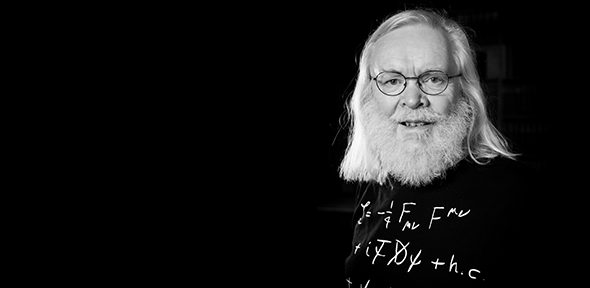
"What are we? Where do we come from? Where are we going?"
These are fundamental questions about the Universe and our place within it that particle physicists address by studying the fundamental constituents of matter using the Large Hadron Collider (LHC) at CERN. Its collisions recreate the conditions in the first fraction of a second after the Big Bang, enabling us to investigate what happened in the distant past and suggesting what may happen to the Universe in the distant future. Following the discovery of the Higgs boson, LHC experiments are now looking for particles of dark matter.
How to book
This event is part of the 2019 Cambridge Science Festival. The talk is free but admission is by ticket only.
About the speaker
John Ellis currently holds the Clerk Maxwell Professorship of Theoretical Physics at King's College in London. After obtaining a PhD from Cambridge University and post-doctoral positions at SLAC and Caltech, from 1973 to 2011 he worked at CERN (Geneva), where he was Theory Division Leader for six years.
His research interests focus on the phenomenological aspects of elementary particle physics and its connections with astrophysics, cosmology and quantum gravity. Much of his work relates directly to experiment: interpreting results of searches for new particles and exploring the physics that could be done with future accelerators. A proposal he made in 1976 led to the discovery of the gluon in 1979, and he was one of the first to study how the Higgs boson could be produced and discovered. He has authored over a thousand scientific papers, with over sixty thousand citations in total. He is currently very active in efforts to understand the Higgs particle discovered recently at CERN, comparing the properties of this particle with the predictions of the Standard Model - one of his papers was quoted by the Swedish Academy as saying that it is "beyond any reasonable doubt" a Higgs boson - and understanding the implications of the discovery for extensions of the Standard Model such as supersymmetry and other possible new physics such as dark matter. He is also now studying possible future particle accelerators, and is known for his efforts to promote global collaboration in particle physics.
John Ellis was awarded the Maxwell Medal (1982) and the Paul Dirac Prize (2005) by the Institute of Physics. He was elected Fellow of the Royal Society of London in 1985 and of the Institute of Physics in 1991. In 2015 he was elected a Foreign Fellow of the Indian National Science Academy and a Foreign Member of the Estonian Academy of Sciences, and he has been awarded several honorary doctorates.
